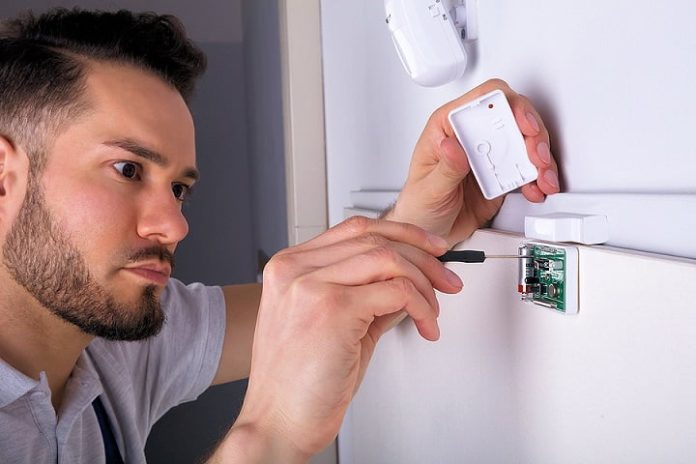Is it really possible to defeat a system by bridging the alarm contact when the system’s not armed? I’ve heard techs and end users talk about incidents where security system was overcome after zones were disabled in this way during the day. Are all alarm panels vulnerable to this sort of attack and what’s the answer?
A: Yes, it is possible to blind any PIR (or dual technology sensor, reed, etc) by bridging the alarm contact when the system is in off mode during the day. It’s odd that the problem is discussed as little as it is, given the vulnerability it poses to alarm systems. Happily though, it’s a problem that can be built out of any system with a little thought. For a start, if there’s a short in its circuit, no sensor will be able to change state and quite obviously, that means no alarm will be activated.
The way around this is for sensor tampering to be reported at the monitoring station and the keypad 24-hours a day. Simple 4-zone and 8-zone panels won’t be able to handle this without some kind of help from the installer but bigger panels are designed to get around the vulnerability. As we all know, resistance across a panel is 2k2 when the alarm is in safe mode. In the big panels there’s a 2k2 resistor wired in series across the alarm trigger contact, with a 6k8 resistor wired in series across a normally closed tamper switch. In safe mode, loop resistance is 2k2. If an alarm is triggered the loop goes short, should the wires be cut the loop goes open and if at any time tamper is activated these 2k2 and 6k8 resistors give the zone loop a tamper resistance of 9k. It’s this electrical resistance that’s interpreted as a tamper and bigger panels look out for it 24×7.
Essentially the 2 resistors that replace the ordinary EOL allow the system to monitor 2 parameters on the same zone so there’s no need to wire tamper separately. If a system was installed incorrectly by someone unfamiliar with advanced panel design then yes, there’s vulnerability. Building 24-hour tamper in a garden variety 4 or 8-zoner would mean pulling 6-core cable and designating one zone as a 24-hour tamper.
It’s not really necessary for domestic or small commercial alarm systems to go in with an external siren these days, so you could either use the 24-hour siren tamper zone exclusively, or share that zone with a strobe or an internal screamer. Sure, you wouldn’t get accurate zone tamper but a general system tamper with the stipulation of patrol response would be more than sufficient in most cases.
#sen.news









